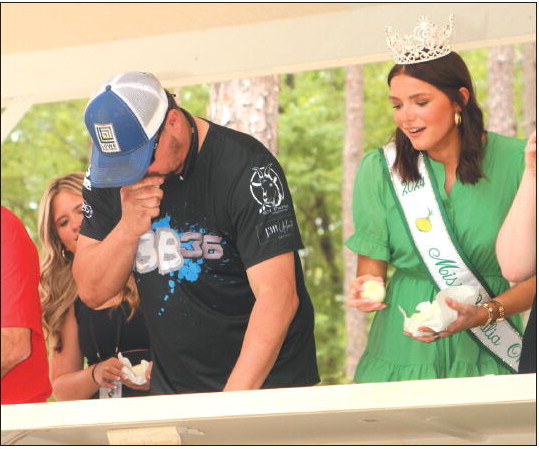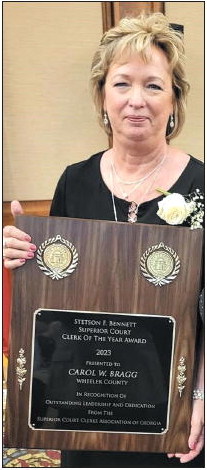continued from page area we’re ….
continued from page
area we’re trapping.” If a tegu is spotted, traps will be set to try and catch it. The key, McBrayer added, is the involvement of Tattnall and Toombsarea residents. He’s looking for owners of at least 5 acres of likely tegu habitat who are willing to allow the Georgia Southern crew to temporarily set game cameras on their property.
Not that the need for public involvement to help eradicate these invasive lizards is new.
Residents have responded to the call to report sightings of tegus in the wild, dead or alive. Of the seven tegus collected last year in Tattnall and Toombs counties, the public found or killed three. The seventh was a large tegu detected by a game camera on a Tattnall County farm and later trapped.
While it’s not known where the tegus in Toombs and Tattnall came from – tegus are popular as pets – it’s clear they spell trouble in the wild. Daniel Sollenberger, a senior wildlife biologist with DNR’s Wildlife Conservation Section, said tegus are generalists in habitat, diet and the temperatures they can survive.
“They can live almost anywhere and eat almost anything,” Sollenberger said.
The problem is not only their appetite, which favors eggs – including those of protected species such as American alligators – but can vary from pet food and plants to fruits, vegetables and small animals. There is also concern tegus could spread exotic parasites to other wildlife and cause bacterial contamination of crops. Research shows, too, that these reptiles, like most, carry salmonella.
Once tegus are established, eradication is almost impossible. Florida has three confirmed populations in the wild. Trapping at one site along Everglades National Park can yield hundreds of tegus per season. WHAT CAN YOU DO?
Area landowners interested in allowing tegu project game cameras on their property should contact Georgia Southern University’s Dr. Lance McBrayer at (912) 478-5111 or lancemcbrayer@ georgiasouthern. edu. Report tegus seen in the wild, alive or dead. Note the location, take a photo if possible and report the animal at gainvasives. org/tegus, (478) 994-1438 or gainvasives@ dnr.ga.gov. In Toombs and Tattnall counties, keep pet food inside, fill holes that might serve as shelter and clear yards of debris such as brush piles that can provide cover for tegus.
Be a responsible pet owner. Do your research before buying an exotic pet, and don't let it loose.
Note that as a nonnative species, tegus in the wild in Georgia are not protected by state wildlife laws or regulations. They can be legally trapped or killed year-round. However, animal cruelty and local ordinances apply, as do appropriate safety precautions.
L earn more about invasive tegus at georgiawildlife. com/tegus.






